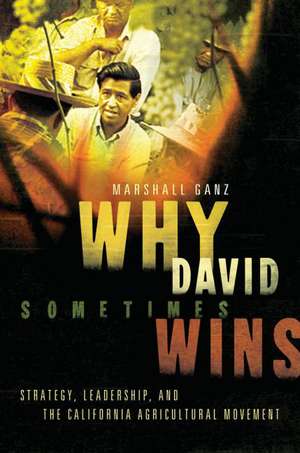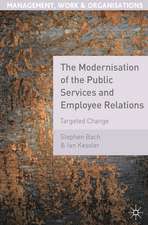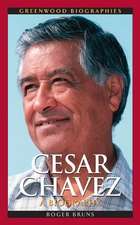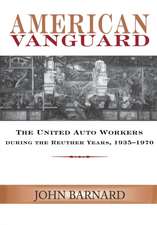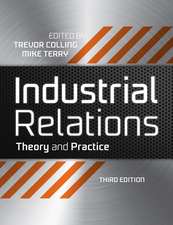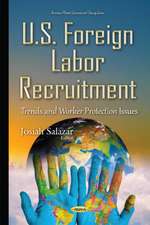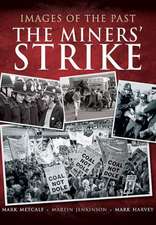Why David Sometimes Wins: Leadership, Strategy and the Organization in the California Farm Worker Movement
Autor Marshall Ganzen Limba Engleză Hardback – 7 mai 2009
| Toate formatele și edițiile | Preț | Express |
|---|---|---|
| Paperback (1) | 252.15 lei 31-38 zile | |
| Oxford University Press – 30 sep 2010 | 252.15 lei 31-38 zile | |
| Hardback (1) | 331.60 lei 31-38 zile | |
| Oxford University Press – 7 mai 2009 | 331.60 lei 31-38 zile |
Preț: 331.60 lei
Nou
Puncte Express: 497
Preț estimativ în valută:
63.45€ • 67.85$ • 52.90£
63.45€ • 67.85$ • 52.90£
Carte tipărită la comandă
Livrare economică 07-14 aprilie
Preluare comenzi: 021 569.72.76
Specificații
ISBN-13: 9780195162011
ISBN-10: 0195162013
Pagini: 368
Ilustrații: 17 black and white halftone illustrations, 5 line illustrations
Dimensiuni: 236 x 155 x 36 mm
Greutate: 0.66 kg
Editura: Oxford University Press
Colecția OUP USA
Locul publicării:New York, United States
ISBN-10: 0195162013
Pagini: 368
Ilustrații: 17 black and white halftone illustrations, 5 line illustrations
Dimensiuni: 236 x 155 x 36 mm
Greutate: 0.66 kg
Editura: Oxford University Press
Colecția OUP USA
Locul publicării:New York, United States
Recenzii
This throughly documented account is support by insights and evidence from Marshall's personal experience, and many will read it as much for its exciting story of the farm workers' struggle as for its contribution to the theory of social movements.... Recommended.
In Why David Sometimes Wins, Ganz demonstrates his own marvelous story telling skill in his narration of the farm workers' movement in America... It's about organizing and tactics that work. Ganz describes them in a unique and interesting manner from his own vantage point within the farm workers' movement. WHy David Sometimes Wins is a valuable resource for teachers and students of community organizing, labor history and the dynamics of social change.
A brilliant new book.
Why David Sometimes Wins is an exceptional book that will be of widespread interest to scholars and activists alike.
This book is a must read for organizers. The analysis of how a small and poor, but motivated, group of workers triggered a social movement provides invaluable lessons on what to do and not do as we struggle with the challenges of the 21st century.
In Why David Sometimes Wins, Ganz demonstrates his own marvelous story telling skill in his narration of the farm workers' movement in America... It's about organizing and tactics that work. Ganz describes them in a unique and interesting manner from his own vantage point within the farm workers' movement. WHy David Sometimes Wins is a valuable resource for teachers and students of community organizing, labor history and the dynamics of social change.
A brilliant new book.
Why David Sometimes Wins is an exceptional book that will be of widespread interest to scholars and activists alike.
This book is a must read for organizers. The analysis of how a small and poor, but motivated, group of workers triggered a social movement provides invaluable lessons on what to do and not do as we struggle with the challenges of the 21st century.
Notă biografică
In 1965, Marshall Ganz began a sixteen-year career with the United Farm Workers, where he became Director of Organizing. He is now Lecturer in Public Policy at the Kennedy School of Government, Harvard University.
